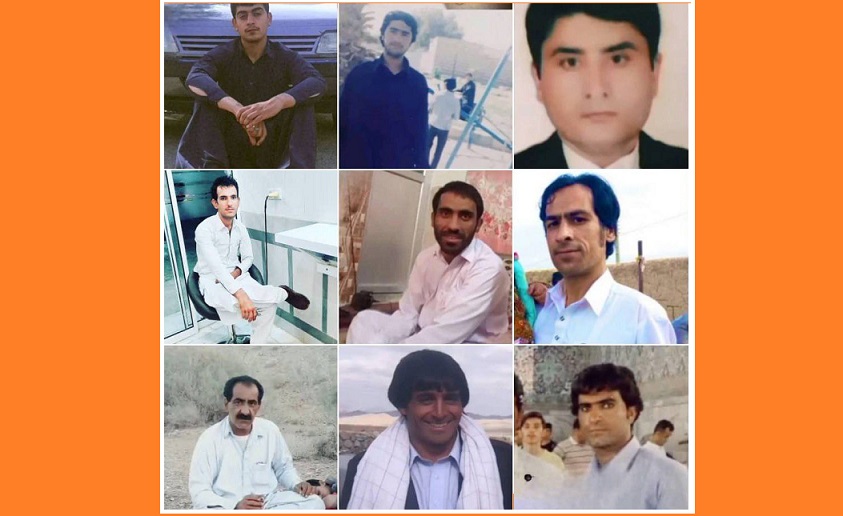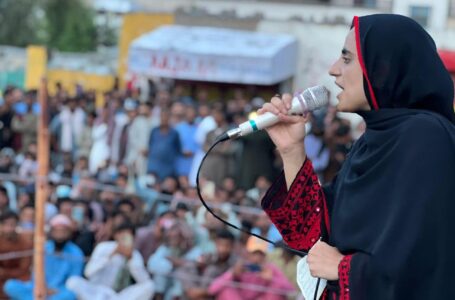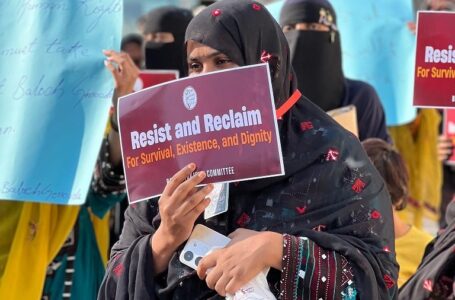FBM Holds Simultaneous Protests Against Pakistan’s Nuclear Tests on Baloch Land
Continuation of Baloch Genocide: Mass Execution of 9 Baloch Prisoners by Iran

DOZZAP (ZAHEDAN): Human rights organisations based in Iranian-occupied Balochistan have reported that on December 15, 2024, at least 9 Baloch prisoners were executed in Zahedan and Yazd prisons.
Among those executed, 4 were in Zahedan, and 5 others in Yazd, all on charges related to drug offenses.
However, activists and human rights groups have raised concerns that these executions may be politically motivated, pointing to a systematic pattern of repression against the Baloch population.
The latest victims of Iran’s death penalty campaign include:
- Mohammad-Wazir Rodini, 45, from Zahedan
- Alireza Goleh-Bacheh, 37, from Zabol
- Elyas Tardast (Shahozaei), 22, from Zahedan
- Yaghoub Brahui Moghadam, from Sefidabeh, Nimrouz County
- Mohammad-Ali Kharkohi (Brahui), 36, from Zahedan
- Reza Kharkohi (Brahui), 43, from Zahedan (brother of Mohammad-Ali)
- Abdul Basit Toutazaei, 38, from Geragheh, Nosratabad, Zahedan
- Abdul Nasser Toutazaei, 38, from Chah Rahman, Nosratabad, Zahedan
- Nematollah Toutazaei, 33, from Zahedan
While these executions are officially attributed to drug-related crimes, human rights advocates argue that they may be part of a broader, politically charged campaign aimed at silencing the Baloch population.
Many Baloch prisoners are reportedly denied access to independent legal representation, and their trials often lack transparency, raising concerns about violations of their right to a fair trial.
This is not the first instance of collective executions of Baloch prisoners. A similar mass execution took place on October 26, 2013, when at least 16 Baloch prisoners were executed in Zahedan’s central prison. At the time, Mohammad Marzieh, the prosecutor of Zahedan, confirmed that the executions were in retaliation for an attack on border guards by the armed group Jish al-Adl. His comments suggested that the executions were not only about the alleged crimes but also motivated by political revenge.
Reports indicate that many of those executed were held on charges unrelated to drug offenses, with some prisoners awaiting trial or already sentenced to penalties other than death. The lack of transparency in these cases and the sudden executions without family notification highlight the pattern of injustice facing the Baloch people.
The Iranian judiciary has repeatedly issued heavy sentences, including the death penalty, without ensuring fair and impartial trials, a clear violation of Article 10 of the Universal Declaration of Human Rights, which guarantees everyone the right to a fair and public hearing by an independent and impartial tribunal.
Human rights organisations continuously have been calling for urgent international action to address these systemic violations.
The Baloch people continue to suffer under a regime that not only imposes arbitrary executions but also engages in daily violence against fuel carriers, targets civilians in armed robberies, and conducts extrajudicial killings on the streets and highways of Balochistan, all in the name of security.
Reports indicate that in 2023 alone, nearly 200 Baloch citizens were executed, including at least four women.
Iran remains one of the top executioners globally, with the Baloch people making up the highest proportion of those sentenced to death, reflecting the Iranian regime’s deep-rooted hostility toward the Baloch people.
International human rights organisations and governments have repeatedly been urged to take immediate action to hold Iran accountable for its continued disregard for human rights and its ongoing persecution of the Baloch people.










